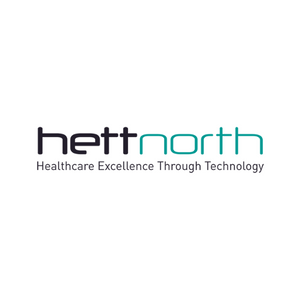Written by Inhealthcare
Just as disparities exist between women and men’s pay, there is a similar gap around female healthcare and research. Men have historically been treated as the default patient in clinical practice and medical research, and women’s health and healthcare needs have been marginalised.
Though many issues that have disadvantaged women are global, alarmingly the UK has the largest gender health gap in the G20 and the 12th largest globally. Women fare more poorly compared with men in relation to disease prevalence, access to healthcare, as well as outcomes after treatment. For example, women are less likely than men to have a heart attack correctly diagnosed, and are more likely to experience poor mental health.
The good news is that work is being done to make a change. The first ever government-led Women’s Health Strategy for England was launched in July 2022, which aims to drive systemic changes so that the health needs of women and girls will be better met.
The report, which results from a call for evidence of more than 110,000 responses, details ambitions in the strategy, including, ensuring that women’s voices are heard without stigma; improving women’s access to medical services for female-specific illnesses, as well as conditions that affect both men and women such as dementia and stroke; and addressing intersectional disparities that affect women, such as age, ethnicity, and disability.
The publication of the strategy is a vital step forward towards tackling this imbalance, but bridging the gap should not solely lie with the government. It must be achieved through collaboration – the NHS, the voluntary sector, local communities and the private sector.
How can technology play a part?
The potential for digital health technology to transform the delivery of healthcare is nothing new but could it be women’s health where technology could make the biggest difference?
Post COVID-19, we are starting to see more widescale adoption of technology with virtual wards and remote monitoring services being rolled out at scale across the UK, enabling patients to be safely cared for in the comfort and convenience of their own homes.
The use of technology means more data is being created, from both men and women, meaning more data for research purposes. Health apps can give women crucial information on conditions such as endometriosis, menopause and hypertension or give support throughout a women’s arduous IVF fertility journey. Video conferencing means patients can see a GP remotely, increasing access for many.
Take our gestational diabetes service, which is offered to expectant mothers across a number of NHS trusts in northern England. The condition can cause problems during pregnancy and after birth but risks can be reduced if detected early and well managed. Inhealthcare empowers women to self manage their condition at home and helps nurses give the right treatment at the right time. It replaces a manual process which based on paper diaries which would often get lost and relied on often tired mums-to-be remembering to take readings.
Our service for postnatal hypertension tackles a similar issue. The condition affects up to one in 10 women and can lead to serious complications such as stroke in later life. The service is simple: the patient takes a blood pressure reading at home and the readings are automatically relayed to the clinical team. The frequent monitoring helps nurses keep an eye on patients, who in turn have to attend fewer appointments in person. And blood pressure readings taken at home tend to be more accurate than those in clinic – avoiding the dreaded white coat syndrome.
Technology generates data that can plug gaps and better inform the allocation of NHS funding to address the gender inequalities that exist so starkly. But above all, technology increases access and it’s built around the needs of people and it’s convenient.
To find more about how Inhealthcare is working to close the gender health gap, visit our stand at HETT North or get in touch: www.inhealthcare.co.uk
%20(1).png?width=500&height=58&name=HETT%20insights%20logo%20RGB-04%20(1)%20(1).png)


